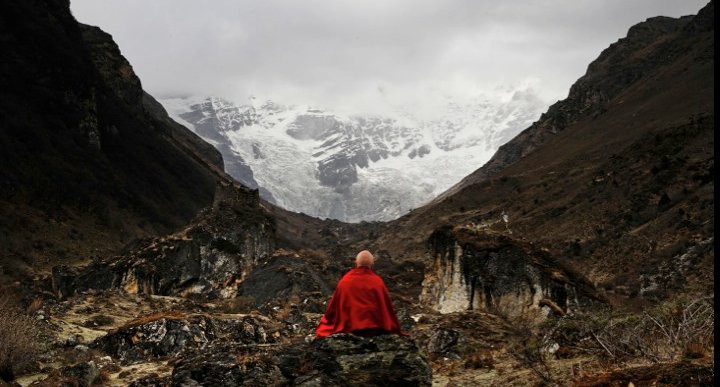Freedom is clearly a basic need for all living beings. Without it people, and animals, can suffer and feel imprisoned. Humans have fought for freedom as a right. But with freedom should come a sense of responsibility and context.
Even the freedom of thought has consequences. Some thoughts lead us to altruistic actions, others incite us to cause harm. Toxic thoughts, can have serious consequences such as hate, racism, prejudice, and more.

We need to consider very carefully the consequences that our speech will have on others. Speech can cause either great good or much harm. Certain statements can pierce the heart of others like arrows. Others can inflame the passions, especially hatred.
How we use freedom of speech must be judged according to its motivation — altruistic or egoistic, benevolent or hateful — and its consequences, the welfare or the suffering of others.
Freedom is often viewed from a purely individualistic perspective. But there are many meanings to the term individualism. it can also refer to respecting an individual, and not using them as an instrument in the service of society. This type of individualism gave rise to the concept of human rights. It imparts moral autonomy to the person and allows her or him to make choices in complete freedom.
However, this freedom should not eclipse the individual’s duties towards society. Otherwise, individualism will deviate towards the egocentric desire to rid itself of all social conscience. This is how we come to the priority of “everyone for themselves.”
The concepts of rights and freedom imply reciprocity. Extremists, especially religious extremists, demand unconditional respect for their beliefs and react violently if they feel that these beliefs have been violated. Unfortunately, they also consider that they do not need to respect beliefs and opinions that differ from theirs. They give themselves the right to show contempt for and to persecute other beliefs and opinions. This is like demanding only one-way respect.
(For instance, the Taliban were very proud of having destroyed the Bamiyan Buddhas. But some time later, when a copy of the Quran was burnt in an old district of Delhi, we know neither who did it nor why, the violent protests that resulted caused the death of a dozen individuals.)

Everyone agrees that freedom can exist only as long as it does not hurt others. However, this view is often put to the test when it comes to freedom of expression. How do we assess and predict the negative consequences of what we say or write?
Passionate and rowdy crowds are often made up of people with little education who perceive what has been said or published as a grave offense to whatever it is they respect. The concept of freedom of expression eludes them entirely. In such cases, we need to be concentrating our efforts on providing these people with better education and promote their transition towards greater tolerance.
It is important not to cling to a dogma of unconditional freedom of expression that is disconnected from the consequences it might entail. In some cases, it is better to take into account the consequences rather than just holding to the principles.
To demand freedom of expression, especially in totalitarian countries, often requires great courage. But once this freedom is gained, it is up to individuals — journalists, writers, opinion makers — to use their judgement based on the greater good. They need to be careful not to use this freedom to demand, at any cost, the right to say whatever they think without regard to society and become at risk of falling into dangerous extremes. This would lead to a sort of dictatorship of individualism, reflecting a lack of compassion.
Some deviations, such as racist slurs, incitement to violence, Holocaust denial, and so on, are now punishable by law. However, it is not possible to legislate on all the exercises of freedom of expression. Therefore, we must base our actions on kindheartedness and from that decide for ourselves how best to use this freedom. Kindheartedness does not mean taping our mouth shut and breaking our pencil in two or closing our computers; it means that we must open our heart even more.
To better understand the concept of freedom, consider what Gandhi said,
“The outer freedom we will achieve depends upon the degree of inner freedom we have attained. If this is the true understanding of freedom, then our main endeavor should be devoted to our realizing inner transformation.”
Nowadays, many people practice the “pseudo-freedom” of doing whatever pops into their head. This is a strange concept of freedom because, in fact, we become the very plaything of our thoughts that then stir our mind and imprison us.
In truth, to be free is to be master of oneself. We must not see freedom as merely something outside of us, and forget to become aware of the tyranny of thoughts within.
To be free is also to emancipate oneself from the constraints of destructive thoughts. It is taking control of one’s life, instead of abandoning it to the patterns that have been forged by habits and mental constructs. If we leave the helm of a boat, and let it sail adrift, we run the risk of being shipwrecked. Better to be at the helm, plotting a course towards a chosen destination.
Published in “Robert Capa, 100 photos pour la liberté de la presse,” Reporters sans frontières, December 2015. Translated from the French
Originally published at medium.com


